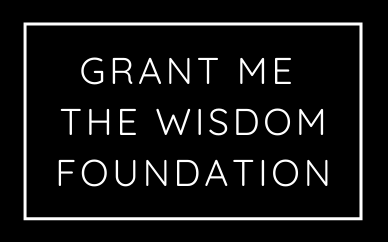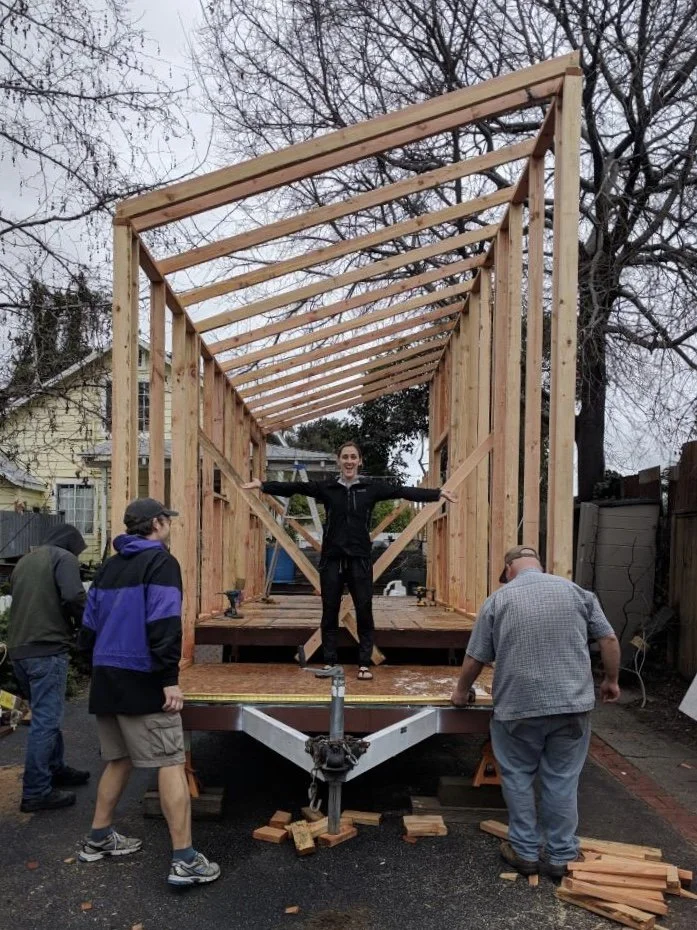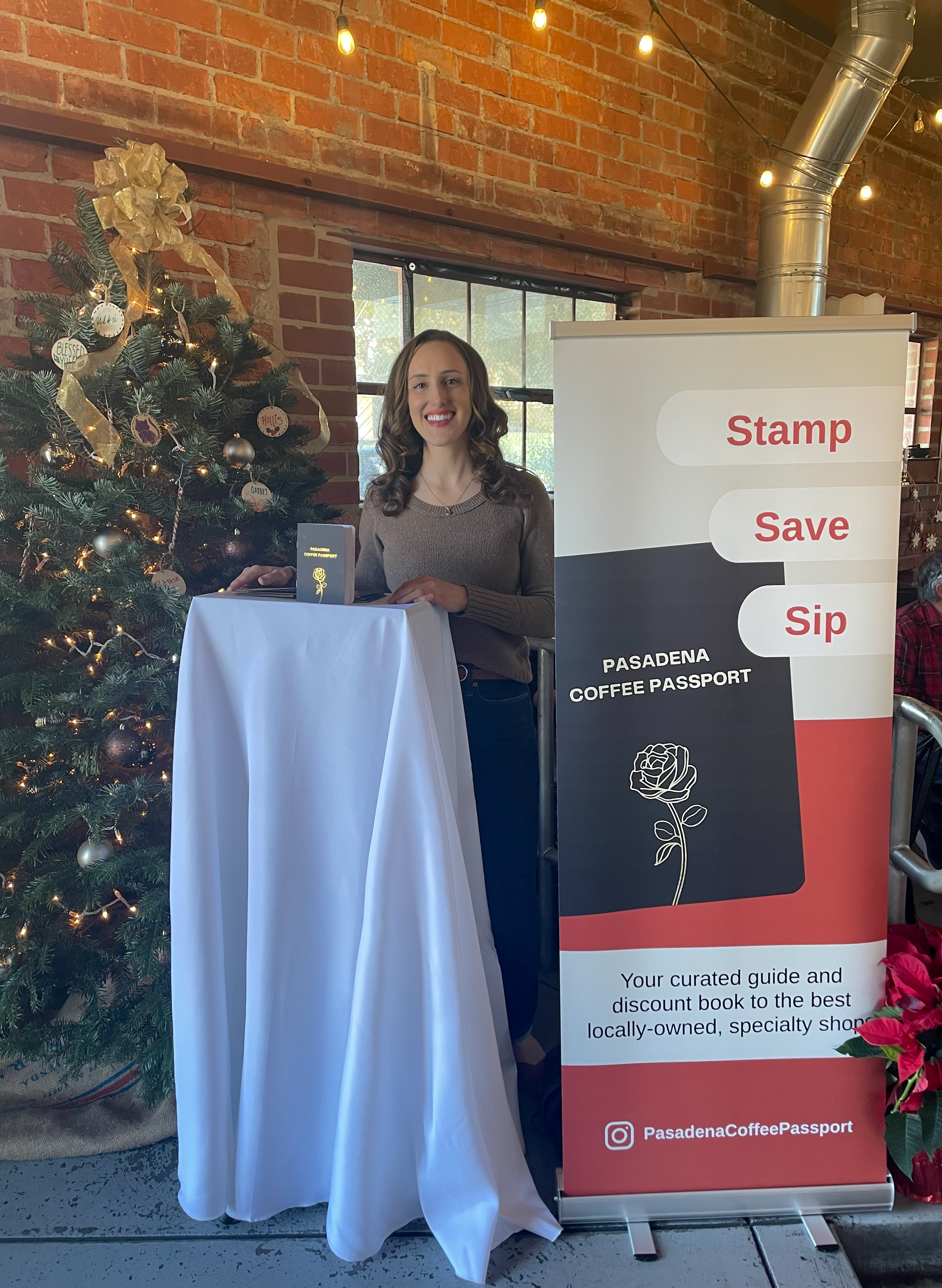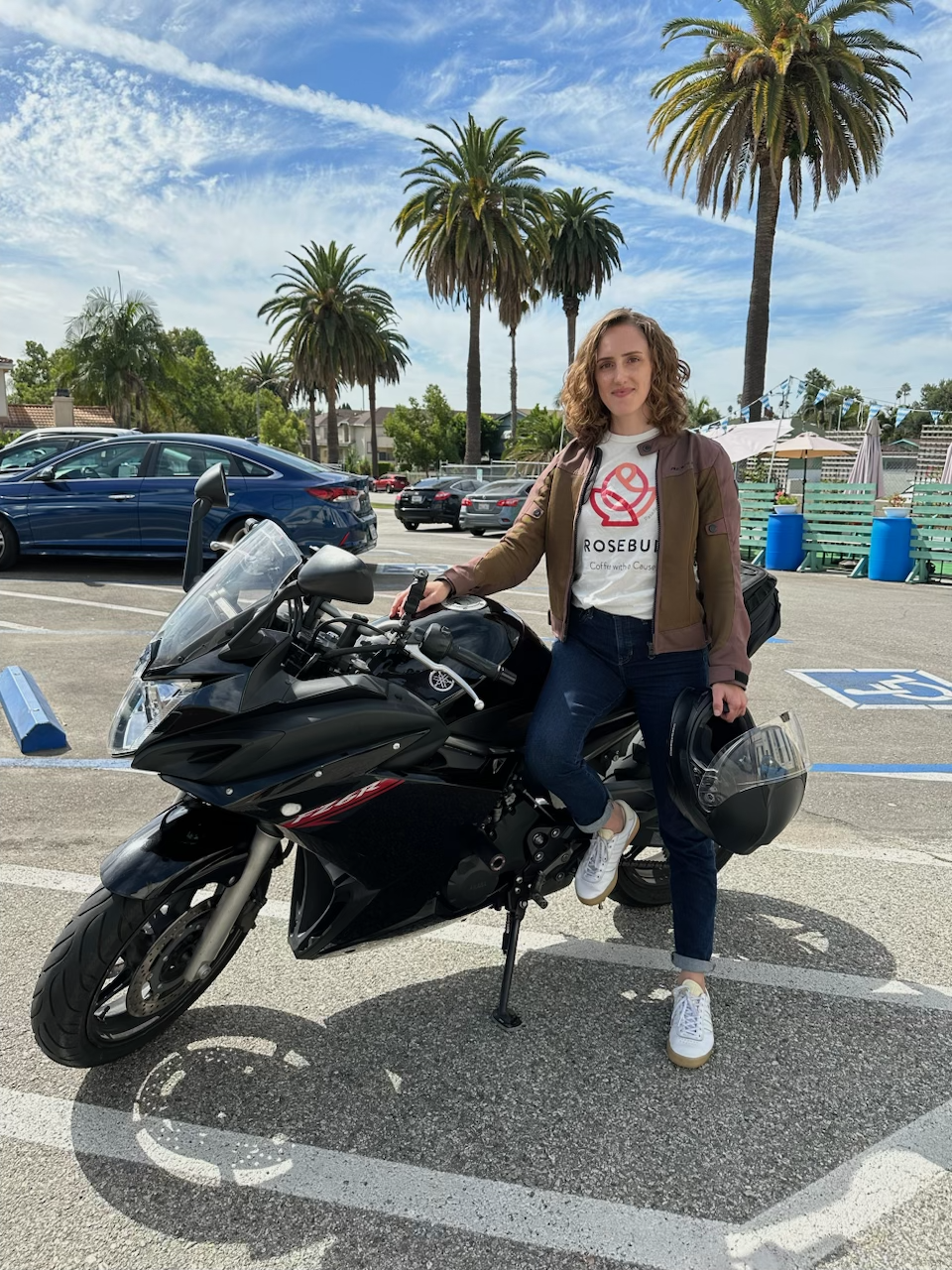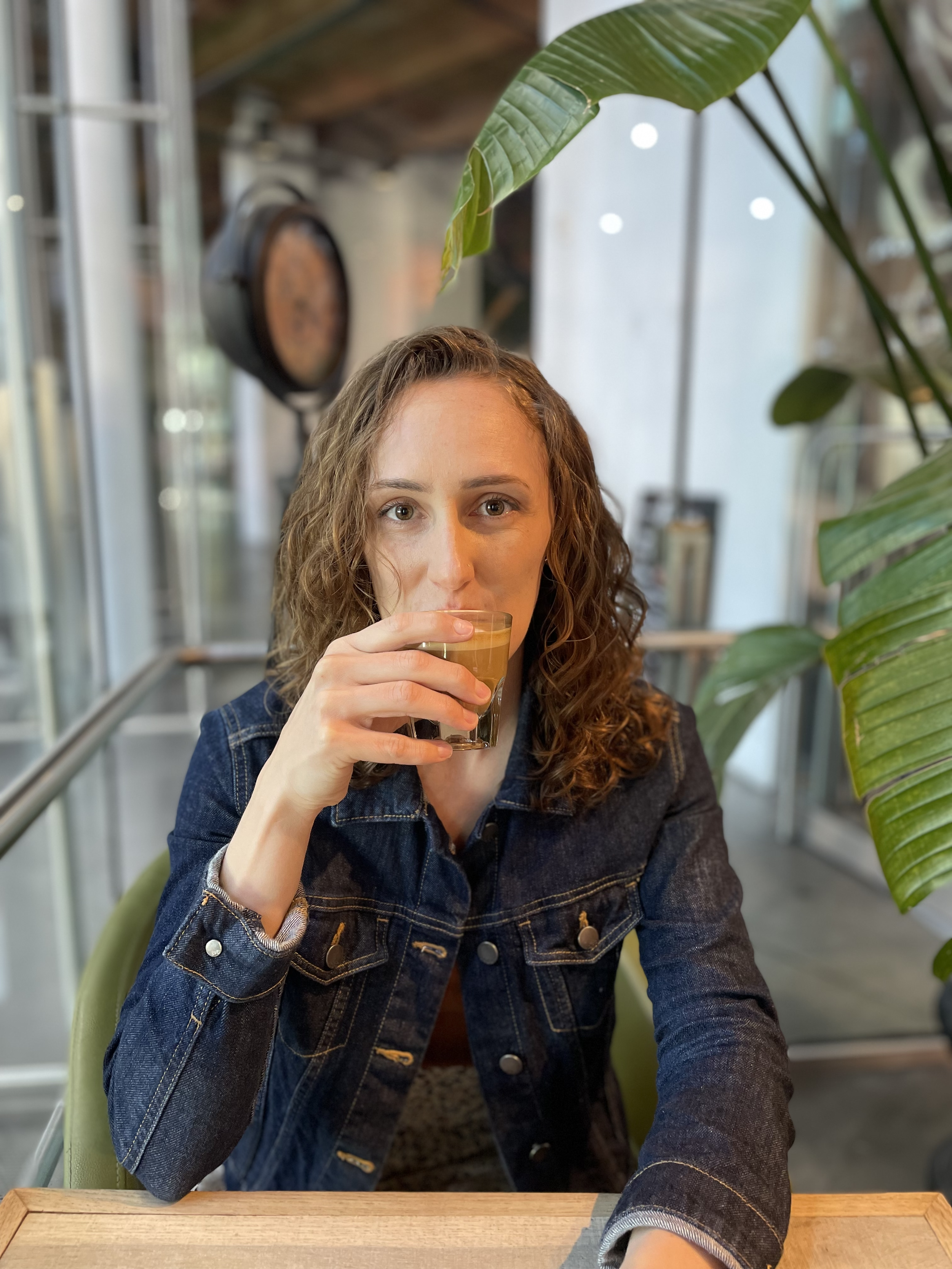Interview with Melissa Spolar
By: Moriah Lee Asch
MELISSA SPOLAR
Melissa is the founder of the LA Coffee Passport and the founder of The Nightcap Collective. In her seminarian Master’s degree Melissa was chosen as a recipient of the coveted Kern Scholarship. She has built and sold not one, but two tiny houses, pursued a career as a stuntwoman, and worked as an extra in LA-based TV sets. For three years she served as an operations manager for a local non-profit coffee shop, and we can’t help but to mention her storied life as a motorcyclist. Basically, she’s the coolest person we know.
Melissa graced us with an hour out of her busy schedule to discuss her entrepreneurial spirit, imposter syndrome, gender dynamics in the workplace, and healthy male relationships.
This interview was conducted on October 17, 2025.
MLA: Welcome! Give us an overview of your story. Who is Melissa?
Melissa: I’m just a girl from the suburbs of L.A. I’m a Christian. I’m the youngest of a huge family—5 older siblings, which I do think shaped me in a lot of ways, especially having four older brothers and always trying to keep up with them. I promised myself I’d keep this answer brief because otherwise I could talk for hours on just this question alone (laughing).
MLA: In prepping for this interview I was listing out all of the projects and accomplishments I’ve watched you spearhead in the last decade, and as I was writing out the list, the thing that struck me the most was how all of these projects were done in male-dominated fields. For instance your seminary degree, the construction of your tiny homes, your stunt-woman life, your business enterprises. All of your accomplishments seem to be taking place in spaces that are usually dominated by men. I’m wondering what that gender dynamic has been like for you as a woman.
Melissa: In so many of my career journeys, I do feel like my male colleagues and supervisors rarely wanted to give me credit for things. In fact, many would openly take credit for things that I had done. The few times I tried to advocate for myself to get credit for my work, I felt the tension, as if my ego was the problem.
It took me until my 30’s to recognize patterns of misogyny in the workplace. The more my confidence grew in my professional abilities, and the more I did advocate for myself, I could see it bothering male colleagues and superiors.
It eventually dawned on me that any comments I had received in the workplace about asking too many questions, being ‘too opinionated,’ or trying to optimize things rather than just ‘do what I’m told,’ had come almost entirely from men. The times I had been complimented and encouraged for the very same things had come almost entirely from women.
During one particular meeting addressing relational issues on a leadership team, a male colleague expressed frustration at me for how I sometimes questioned or disagreed with his opinions. This was an equal of mine who regularly questioned, disagreed with, and challenged me. And yet, me ever doing the same felt disrespectful to him. It was eye opening to realize how much the male ego can still have in the workplace, even by well-meaning men who probably think of themselves as egalitarian.
I think there are times as a woman where you can’t just stay in a place where you’re disrespected. You can’t flourish if you’re stuck in a workplace where that kind of culture is not only invisible, but also the people perpetuating it are the ones in power. It was time for me to get out and start my own thing.
MLA: Yes,“start your own thing”! Which leads us to the LA Coffee Passport. Tell me a little bit about that project.
Melissa: Yeah, the Coffee Passport was just a random idea I had while I was driving home, I still remember I was on the freeway. I was picturing it: “Wouldn’t it be cool if there was a physical passport for coffee shops?” And I just thought, “You know what? Every now and then I get ideas like this and then I never do anything about it, and this time I’m just gonna go for it.”
When you sent me the interview questions and I was thinking about who might read this article, by far the biggest thing that came to mind is the realization that there are so many women out there who have their own business ideas, or ideas that make them think, “Wouldn’t it be cool if—?” And if there is one thing I want those women to hear it’s: why not you? When it comes to our own ideas, women tend to think, “Oh well, I’ll leave that idea to someone who is more experienced, or someone who has greater resources,” but, no! Why not you? You can learn so much from the internet, or hire out for some of the stuff you literally can’t do, but really, why not you? Everything out there that exists these days came from someone taking a risk. Women especially have that voice inside them saying, “why me?” But no! Why not you? That’s the biggest thing I would want somebody to hear.
So yeah with the Coffee Passport, I just thought, cool! Let me mock this up, let me chat about it with people I know who are really into coffee, and everyone I talked to thought it was great and kept telling me they would buy it. I already had a foot in the coffee scene here in Pasadena, but I didn’t really think of myself as a salesperson. For the Passport I really had to become one. I had to go pitch to all these coffee shops, show up at the coffee shops trying to catch the owners—yeah, I was shocked that not a single coffee shop said no. They were all interested and agreed to participate. It really was just me saying, “For once I’m not going to let a cool idea just float by me.” And I’m so glad I didn’t! The Passport felt like the first time I really took a chance on myself. Getting to hold the first print run of passports in my hand and realizing, “Dude. I freaking made this”—that was exciting.
MLA: You’ve obviously had your hat in a lot of rings, especially enterprises in male-dominated fields like we’ve been discussing. I’m wondering what advice you might give to other women who want to venture professionally and personally into spaces that are typically male-oriented.
Melissa: Ok this is me quoting Jenna Ortega, who’s actually quoting someone else, but it’s relevant! I struggled a ton with imposter syndrome over the course of my life. “Can I really do it, I don’t even know if I can pull it off,” you know, all the common things we women say to ourselves. And then I saw this clip from Jenna Ortega, and she was talking about how she was learning the cello for the Wednesday Addams role, and that her teacher effectively told her to enter the world with the confidence of the average white male.
And I went, “Wait a minute—yes!” Because so many of us women enter spaces feeling things out, and we’re a little timid, and we don’t want to step on anybody’s toes, and we want to earn our place; and yet how many average white males with no more intelligence, or skills, or experience than we women have, bust into that space and start telling people what to do left and right, and the rest of us just put up with it! So if men can pull off these outrageous levels of confidence in the workplace, why can’t women? If people push back on women taking leadership and confidence roles, we at least know we can back it up with our skills and intelligence most of the time.
So many women are just as capable (if not more capable) than their male counterparts, but there’s so many messy cultural dynamics that we women face: not wanting to come off cocky, or step on toes. But that’s where I want to reiterate my new favorite phrase to the women reading: “why not you?”
Melissa: I will say though I feel like singleness has to come up in this, because there’s a layer to this as a single woman. When I began the Coffee Passport I was a year or so post-breakup at that time, and I felt like I was just sitting at home and doing nothing, and as much as part of me wishes I wasn’t single at this age, I think it’s a big part of what has pushed me.
The time required for these projects is real. Sometimes I wonder if I had gotten married already, or if I had kids, if I would have had the time to take these chances. Because these projects do take time. I would work on these projects on my lunchbreaks, after work on my evenings and my weekends, and I realize that is a luxury of time that I had.
MLA: Truthfully I think your singleness is what makes you even more of a feminist icon. People who know you realize that most of your family lives out of state, so your local support system is automatically smaller. And in all of your projects it’s not like you’ve had some husband who worked a salaried job and was supporting you in all these business ventures. A lot of people who go into these projects have that spousal support because it can be too untenable otherwise. Meanwhile here you are, doing it anyway, on your own, because you could. I find that inspiring.
Melissa: Honestly there were plenty of moments, especially in the last two months of opening and renovating the Nightcap Collective venue, there were so many times where I’d be like, “Dude. If I had a man who could help me install these lights right now, that’d be pretty nice.” But I don’t. So it’s not always a great thing, but I do actually think I’ve done more cool things in my life because I’m single, and that alone has given me the luxury of some free time. And while marriage seems great and I’m not saying people should avoid it, I do want to encourage other people who are single out there. People used to tell me “make the use of your singleness.” I used to hear that and roll my eyes, thinking, “What does that even mean?” but now I’m realizing it’s true.
MLA: From the outside looking in, I’ve observed that your lifestyle seems to be one of tenacity and a sense of fearlessness, but I’d like to hear from you what you think are some of your key strengths that have contributed the most to your successes?
Melissa: I feel like I can’t not mention the community around me. There are so many people in my life who have physically and personally helped me with stuff, or who have hopped on the phone to talk me through how to do things. Supported me as I called in tears when something didn’t work.
I couldn’t have done any of this without a support system in place, and that’s something that does take nurturing. Relationships are mutual, you’ve got to invest in them, and I say that to say I am super thankful for the community I have. It’s something that I have been incredibly intentional to maintain, to make sure I nurture and make time for. Yeah, I also have to shout out therapy, too. Couldn’t have made it to where I am now without some really good therapy [laughs].
MLA: Speaking of community, who would you say has been the biggest influence in your life so far, whether personally or professionally? Anyone you want to shout out?
Melissa: I do want to give a shout out to my dad who worked in construction—he was a sheet metal worker—and he was the kind of dad who was “Mister Handyman.” If something went wrong throughout the house or the car he was the kind of dad who would go, “Oh yeah, I think I can fix that, I think I can figure it out,” and he definitely instilled those ideas in all of us from a very young age, that “you can figure it out” attitude. Since I was a young girl I’ve had that (sometimes overly) confident attitude of “I could probably handle that.” I think I just have to point it back to my dad instilling that mentality in me and my siblings from a young age. I’m not saying my home was totally free of gender roles, but I’m thankful that my dad and my brothers made me do things the same as them, because I grew up believing, “Oh yeah, I can do that.” So I’m thankful for that. I don’t think I would be described as tenacious and ambitious or successful in this interview if that mentality wasn’t instilled in me from my father.
I still remember when I was around 10 years old, we bought a dresser from IKEA, and we came home, unboxed it all, and my dad went, “Cool! Now put it together. You can do it.” And there was just something about him entrusting me with that project and him believing in me enough to hand me the tools and say, “you can do it!” That was powerful.
MLA: That’s beautiful. I hope other dads read this and realize they can help encourage the “can do it” mentality for their own daughters. It seems to be a lifelong gift.
MLA: And now you’re on to Nightcap Collective, an LA-based social club that’s offered weekday evenings to help adults make more friends, yet another amazing idea you’ve launched into action. Tell us a little bit about this current project.
Melissa: Okay, this idea was a little more journeyed. A couple years ago when I was working as a pastor, I knew from seminary that traditional full-time pastoral ministry just wasn’t for me. I knew that I was meant for some sort of alternative ministry. I didn’t know what kind of ministry at the time, but I just knew I didn’t want to be showing up, putting on some program and service every week and dealing with the consumer mentality that’s in the church. I was not about it; I really wanted church to be a place where people could just show up and pursue Jesus in community. All these churches claim they want to help people build community and that they care about all these social causes, and yet all they offer in terms of programming is a Bible Study. I was like, that’s great, but if what we Christians are actually wanting is friendships, I’m sorry but I’m not just going to show up to a singular Bible study for that. Community takes repetitive nurturing.
Then comes COVID. Coming out of COVID was a really hard time for me. I was really lonely. Just a super tough time, living alone as a single person. And I heard from so many people how difficult loneliness could be, how hard it was to make friends post-college, and then COVID made things so much worse in that realm. So I knew I wanted to do something that directly impacted real-life relationships as opposed to creating some new church group. At the time my idea was to start my own coffee shop and host community events from there, but I really needed to get out of my last job, and one night it just hit me, “what if I rented an already-existing coffee shop in the evenings?” Again, some of my best ideas come to me at the most random times, I think I pulled out my laptop and it was 10:30 at night. I immediately texted a female friend of mine who is a coffee shop owner herself saying, “Oh my gosh, what do you think of this idea? Is this crazy?” And she thought it was a fantastic idea, so from there it was just a matter of visiting a bunch of shops to find one that was interested in partnering with me. I got a couple “No’s,” but eventually the shop we’re in now reached out to me. They had heard my idea from the grapevine and wanted to get involved. So now we’re about to open! It’s exciting.
MLA: Any last things you’d like to mention, or would like the world to know?
Melissa: With almost every step in my journey, all of these accomplishments you’re listing out, with every single one I had someone telling me, “Melissa, that’s not a good idea.” When I was going to build my first tiny house some people in my own family were telling me not to do it. Others were asking, “Can you do that? Can you even do that?” “Are you going to even like living in a tiny house?” So many people just didn’t think it was a good idea. But I just knew I wanted to make it happen.
With the tiny house, I had people telling me it wasn’t a good idea. Then I went to seminary, and I had people telling me women shouldn’t be pastors. In the coffee world I had people telling me, “who are you to have opinions?” Even with the upcoming social club, I’ve had people respond skeptically like, “you’re going to sublease a coffee shop? And do events in the evenings? That’s not going to be profitable.” And I’m like, we’ll see! It’s not your money on the line.
Also, many people don’t realize this, but there’s actually so many resources available for people looking to start a business. I know the state of California has the Small Business Development Association, which I imagine there’s an equivalent for every state in the US, but it’s literally just local resource centers where you get to meet with successful business people for free advising. It’s crazy. When I was looking into doing the Passport for the first time, I reached out to the SBDC and that same day I got set up with a free consulting session with a tax professional, legal advisor, a sales advisor, and every single person gave me a check list of things I’d need to do.
You don’t have to do it on your own, there are a ton of free resources out there.
You can find information about The Nightcap Collective at www.nightcapcollective.com.
Follow the LA Coffee Passport on Instagram @LAcoffeepassport.
